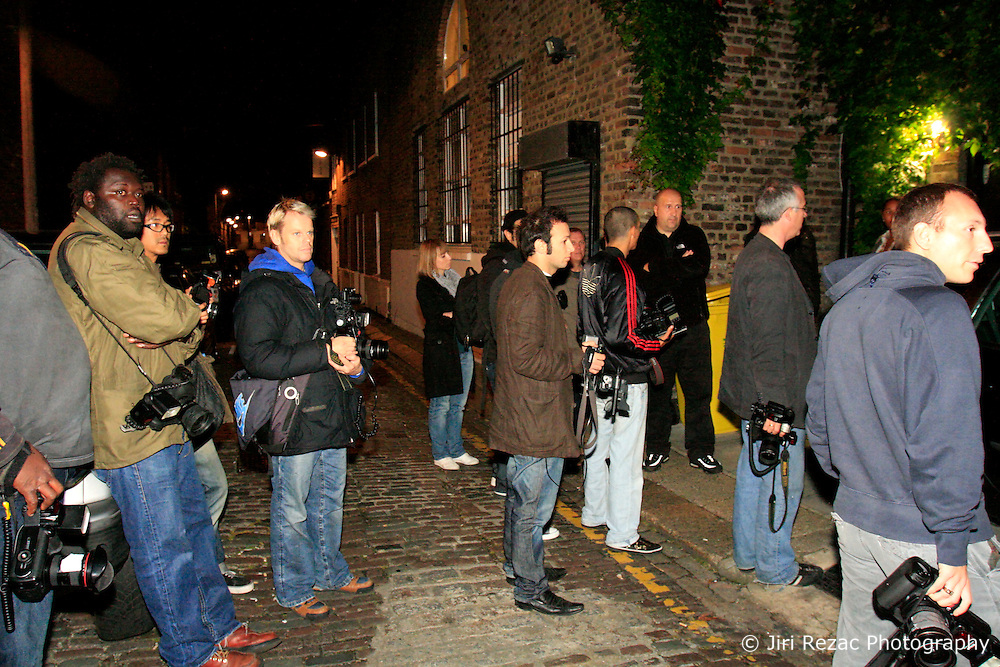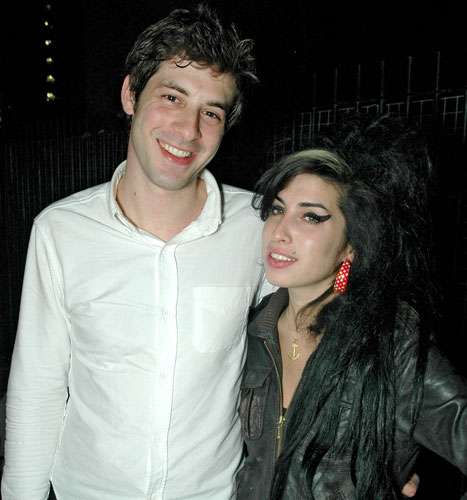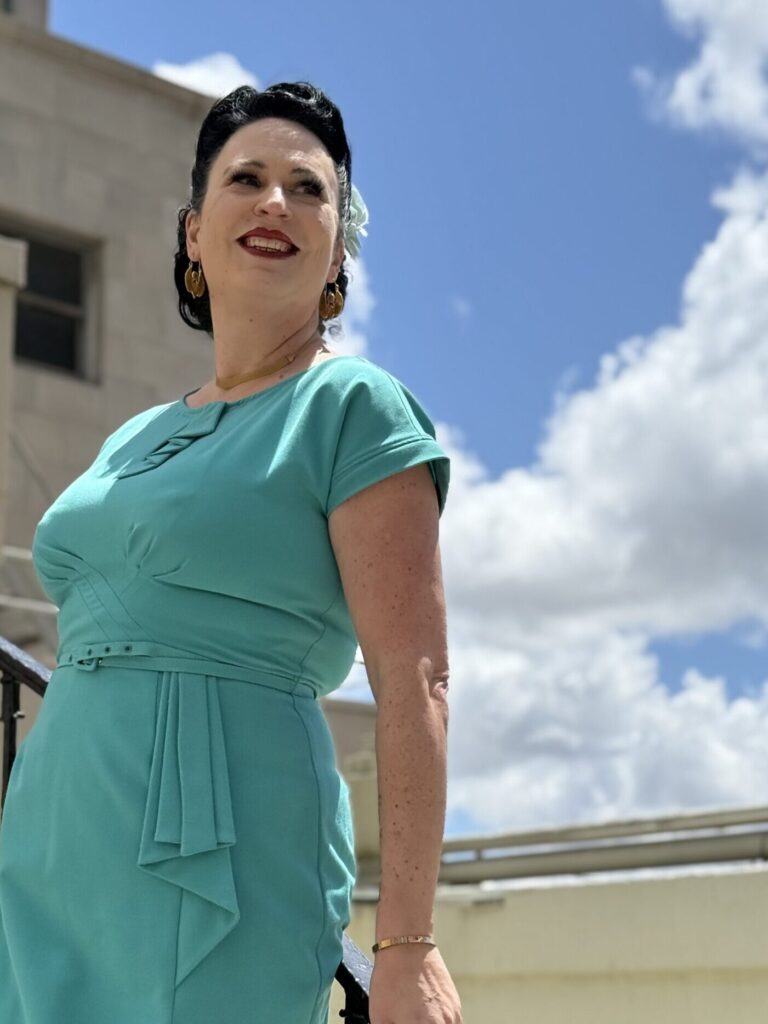
Written By
Regina Luz Jordan
Founder & Editor In Chief
Grief has a strange rhythm. It loops, echoes and waits. On some anniversaries, it hits like a song you thought you could finally skip. Fourteen years later, the loss of Amy Winehouse still lands like that. To many people, especially women, addicts and those of us suffering in silence, it’s heavy, personal and infuriating.
Amy Winehouse wasn’t someone I knew but she felt like someone I understood. And the older I get, the more I see just how many ways the world failed her and how familiar that failure looks when you’ve love and support someone through addiction. The world feels entitled to your pain and they felt entitled to hers and ultimately it was par tof her quick and steady demise.
Amy Winhouse Legacy Was Never Just a Voice
Amy Winehouse was more than a voice. She was a poet, a genre-bender and a British-Jewish woman with beehive hair and a tattooed heart. She was wrapped in jazz, soul and hip hop into something raw and revolutionary. What made her unforgettable also made her a target.
When I write about the intersection of classical music and pop culture for Hollywoodland News, I always come back to jazz. Its rise came from Black communities in America and its power was undeniable.
Even someone as impactful as George Gershwin, who made jazz and classical music collide in a way that pleased white audiences, had to borrow from a tradition he didn’t invent. But Amy found a way to drag jazz into the club, into the smoke and into the heartbreak in ways we hadn’t seen from many artists in the last fifty years.

She didn’t just blend genres. She let them fight inside her songs. Her voice wasn’t clean or polite. It was scarred, sultry and shaken. That’s what made her real. Creativity like hers doesn’t care about categories. So when we talk about the Amy Winehouse legacy, we need to say it plainly. Her strength wasn’t just in the fusion. It was in the fire she lit between the lines.
Fourteen years ago today, she died at 27. The official cause was alcohol poisoning but underneath it all, the real cause was exploitation.
The entertainment Industry Fed on Her Pain
She was hounded by paparazzi. Her addiction struggles were treated like punchlines. Tabloids turned her pain into a profit model. She was mocked, memed and sold to us as both tragedy and spectacle.

The industry was no better and I don’t mean just the music industry. It’s easy to point fingers when she was pushed to perform when she wasn’t well. Amy Winehouse was canceled when she couldn’t deliver. Her image was monetized by the entertainment media and despite all of that being common knowledge, in a world that talks about acceptance and understanding, her well-being was ignored. When she stumbled on stage in Belgrade weeks before her death, you didn’t see a diva. You saw a woman who needed help and got a spotlight instead.
People love the myth of the tortured artist but Amy didn’t need to suffer to make good music. She suffered because people let her.
Back to Black Was a Cry for Help

Mark Ronson understood that. He didn’t just produce Amy Winehouse’s sound, Ronson helped channel the chaos into clarity. The story goes that Amy was walking with Ronson, venting about the pressure from her family and team to go to rehab. She told him, half joking, “They tried to make me go to rehab, and I said, no, no, no.”
Ronson clocked it instantly. “That sounds hooky,” he said. “You should go back to the studio and turn that into a song.”
He didn’t just hear a lyric. He heard her truth. That’s what made their collaboration work. Ronson didn’t clean her up or dull the edges. He leaned into her. He let the grit stay. And in doing so, he helped shape one of the most iconic records of her generation.
But let’s not pretend this was a friendship of equals. Yes, he was already pretty well known, but still, Ronson walked away with awards, a legacy and a thriving career. Amy didn’t get that. She gave us everything and she didn’t survive it. He profited. She perished.
That doesn’t mean he didn’t care but what it does mean is that when we talk about the Amy Winehouse legacy, we have to ask who gets protected and who gets consumed. Amy’s rawness was marketed. Her pain made hits. Her breakdowns were material. And while Ronson helped craft the sound, the industry was happy to package her trauma and call it genius. They cashed in while she spiraled.
Her second album, Back to Black, was a whole lot more than a creative high point. This was a very obvious cry for help. Mark Ronson produced a raw diary of a woman’s grief and loss. It became her most celebrated work. It also became the last album she’d ever finish.
Addiction Doesn’t Just Hurt the Person Struggling
“If my eyes hurt, it’s because they’re full of love I couldn’t give.” – Amy Winehouse
I’ve loved someone through addiction. I’ve had to set boundaries I didn’t want and build walls I still hate. Watching Amy’s story unfold hits a nerve I can’t unfeel because women are always the one burdened with the grief that no one lets them forget.
Behind every person battling addiction is someone silently carrying the weight of loving them.
Someone who has to say no.
Someone who has to walk away, shut the door, stop the crying and pretend it doesn’t matter. Behind every addict, is someone, like me, who carries that pain forever.

So let’s take a moment to let me be clear about this part of the story.
I don’t talk about this part of my life online, because people think that once you open the door, it’s fair game to anyone and everyone with an opinion They think they get to comment, diagnose or offer unsolicited advice in a relationship that they are not in because when you open that door, you’ve let them walk through it. The reason I’m sharing this now is because this is something I still go through and there is power in truth and there is stigma that needs breaking and it’s a line that is very gray.
It’s a piece of ourselves that we have to manage and review and process and go through and then reevaluate and manage and try again in this fucking cycle we have no control over. The only control is the choices we make every time it happens and it hurts every time.
Addiction is not shameful. Protecting your peace isn’t betrayal. Loving someone doesn’t mean losing yourself in the process. I see so much of what Amy Winehouse went through because the media put all of that on display for the world to see and exploitation of her pain and addiction is something that I see more clearly now.
So writing about her struggle and the end result makes me incredibly sad.
The Amy Winehouse Legacy Is a Warning and a Call
The Amy Winehouse legacy lives on in every woman who refuses to be polished or packaged and isn’t that most of us?

It’s every artist who sings about pain without being expected to bleed for it but also every woman who loves with her whole heart and is punished for it.
If Amy Winehouse’s legacy and death teaches any of us anything, it’s that we all need a collective moment to protect ourselves while still holding compassion, empathy and kindness.
So today, we remember her and recall the Amy Winehouse legacy for music, media, the industry of exploitations and, ultimately, our own personal relationships. It’s not just the eyeliner or the heartbreak anthems but everything we do to set ourselves on fire to keep others warm.
We remember what we allowed to happen but we also remember the cost of looking away. And we commit to doing better next time and Amy Winehouse teaches us that her life, music, addiction and death wasn’t in vain.
If you or someone you love is navigating addiction, you’re not alone and you don’t have to carry the weight in silence. While some will recommend AA and Al-Anon and that’s completely acceptable, we also recommend connecting with The Sober Black Girls Club or The Phoenix, two organizations that break down stigma, build community and provide free support for anyone in recovery, including women, BIPOC and LGBTQIA folks.
Addiction doesn’t get to write the ending. Compassion does. Boundaries do. Care does.
You deserve support that doesn’t shame you.
You deserve to be here.


Leave a Reply